|
|
|
People often talk about leading a more "balanced life". It is my belief that this phrase arose from the notion that you can "do (or have) it all". It's a way of expressing a desire to achieve a sense of stability and calmness amid the chaos of a busy life. The problem is a balanced life is not possible, nor is it truly desireable. There are a number of reasons why this is the case.
Balance, by its very nature, is fleeting. Try standing on one foot. Yes, you can do it. But for how long? With practice, you may be able to improve your performance, but you will need to rest and readjust regularly in order to prevent yourself from toppling over. In addition, priorities, needs, and circumstances are constantly shifting making it necessary to adapt and change. The idea that there is some magic formula we can apply to achieve the permanent end goal of a balanced life is a fantasy. The moment you feel as though equilibrium is within reach, something will change. A new need will arise, upsetting your stability and forcing you to adapt. Balance also implies equality of importance. In order for something to be balanced, the different elements have to be equally weighted. When it comes to life, responsibilities, and time management, equality is not the goal. Some things simply require more of our time, energy, focus, and commitment than others, and that's a good thing. Imagine what life would be like if every aspect of our lives (work, family, social interactions, home maintenance, civic duties, personal development, and more) required and received an equal degree of importance and attention. It would be overwhelming and exhausting, to say the least, and oddly enough, it would leave us feeling unbalanced. When we speak of balance, what we really mean is that we want to have enough time, energy, and resources to focus on the things that really matter and not neglect the things we value most.
We all know that there are an infinite number of hours in the day. What we sometimes forget is that we can only do so much in the hours that we have. Author and motivational speaker Jon Acuff stated it well when he said:
In other words, it is necessary to prioritize. If a particular thing is important, then other things must, by necessity, receive less attention. For this reason, I think of life, not as a balancing act, but as a juggling act. Juggling implies a more fluid, changing environment. Think of all the aspects of your life as balls. You can only hold one or two balls at a time, thus requiring you to juggle. If you try to juggle too many things at once, you will drop some of your balls. At any given moment, some balls are more important than others. They are made of glass; other balls are made of rubber. You cannot drop a glass ball, or it will break. Rubber balls, on the other hand, are safe to drop because they will bounce and remain intact until you are able to retrieve them. The secret is to determine which balls are glass and which are rubber, knowing that the nature of the ball will change depending on your circumstances and season of life and personal priorities. Some balls even change in nature during the course of a single day. For example, when you are at work, work requires your focus. It is a glass ball. But when you are at home, other things become more important. The key to success is to learn to discern which balls you can afford to drop or set down and which ones you have to keep in the air at any given time. When we choose in advance what to focus on and what to ignore, we free ourselves from guilt and shame. Instead of feeling bad about some ball you’ve dropped, you can feel empowered by your own mindfulness in deciding not to pick that ball up to for the time being.
Once you buy into the idea that life is not a balancing act, there is much to learn from the juggling analogy. Consider the following:
If you're tired of trying to achieve the impossible ideal of a balanced life, I encourage you to take a step back and reevaluate your situation. Instead of trying to do it all, make an accessment of what matters most. Give yourself permission to set down some of your balls from time to time. Decide when you can best give time and energy to the things that truly matter in your life. Be mindful in the moment by switching balls out periodically to reflect your priorities. Enjoy focusing your energy, effort, and heart on a few essentials and let the extraneaous balls bounce off into the corner until (and if) you are ready to retrieve them.
20 Comments
Have you ever set a timer for one minute and then waited? A minute is a long time when you are just sitting and watching the seconds tick by. Or maybe, like me, you sometimes race the microwave timer to see how much you can get done before whatever's in the microwave is finished. If you've done this, then you know you can accomplish a surprising amount in just a minute or two. With that in mind, think how much you could achieve in ten minutes! A common reason for procrastinating organization tasks is the notion that "I don't have time". In reality, there are many simple organizing tasks that can be completed in 10 minutes or less. What's more, many of these tasks, if done regularly, can make life easier by helping us to stay ahead of the game and maintain a basic level of organization. The next time you have a few unclaimed minutes, try accomplishing one of these 10-minute organizing tasks. Some need to be done at home, but several of them can be achieved while waiting for a doctor's appointment, or for soccer practice to end, or anywhere you may find yourself waiting.
Meal Planning for the week only takes a few minutes, and it is time well spent. Not only is it a great way to save time and money, it is also an excellent way to ensure your family eats healthier.
Ten-minutes is generally plenty of time to do any of the following:
If done every day or two, it only takes a few minutes to sort through the mail, recylce or shred the unwanted items, file what needs to be filed, and set aside or act on those things that require attention. The same can be true for other piles of paper that may have begun to accumulate around the house.
If you're talking on the phone or waiting for a pot to boil, take a few minutes to clean out your purse, work bag, or child's backpack. It's quick and easy, and it feels like an accomplishment. As a bonus, doing this task regularly can prevent forgetting or missing something important.
Stuff piles up quickly on desktops. The presence of clutter, especially on a work surface, can impact a person's productivity, creativity, and ability to focus. Clearing away the clutter will leave you feeling refreshed and make it easier to concentrate.
Countertops are clutter magnets, so taking a few minutes every couple of days to clear away whatever has collected is a good way to keep things from getting out of control. Clutter-free countertops set a tone for the space. Maintain a feeling of order by keeping your counters free and clear.
Even fairly messy rooms can be tidied or reset in a matter of minutes, provided everything has a place. A tidy space speaks to our subconscious in much the same way as a cluttered space. The difference is, instead of leaving us feeling frustrated, overwhelmed, and unsuccessful, a tidy space engenders feelings of control, accomplishment, and calm.
Got ten minutes? Why not clear the junk mail from your inbox? While you're at it, unsubscribe to newsletters and emails that no longer interest you, delete unneccessary or outdated emails, and organize the rest.
This is something I rarely think to do, but it only takes a few minutes. Use the time to merge duplicates (am I the only one who has these?) and delete contacts you no longer need. While you're at it, why not clean out your voicemail inbox as well?
If you're like me, you save websites and then forget about them. Before long, your favorites folder can become a cluttered mess of disorganized information. Take a few minutes to delete bookmarks for sites that no longer interest you and organize the rest.
Here's another simple task that has the power to lift your spirits. Go through the glove compartment, the center console, and any other cubbies where you may have things stashed. Toss out any trash, and if time allows, give the whole interior a good wipe down. If you're really feeling ambitious, vacuum it all out. Of course, that will take a little longer, but not much if you're using an industrial strength vacuum. My husband surprised me awhile back by picking me up from the airport in a newly cleaned out car. I noticed it immediately and every time I got in the car for the next couple of months until winter arrived with its dirty melted snow and salt encrusted roads and ruined everything...
This is yet another task that can leave you feeling a little better about life. In mere minutes you can empty out sketchy leftovers, remove expired items, wipe down shelves, and arrange the remaining contents of your refrigerator in an orderly fashion. Once you've done so, opening the door will give you a little sense of accomplishment as you are confronted with the neatly arrayed shelves.
The next time you're waiting on hold, take a few minutes to sift through your pantry or food cupboard in search of expired food. While you're at it, combine open containers of the same product. Wherever it makes sense, remove unnecessary packaging to save space.
The junk drawer is always a good place to start if you want to complete a quick household organizing task. Other prime candidates are desk drawers and night stand drawers, but any drawer will do. Who knows, you might even have time for two!
Spruce up your entry by organizing your coat closet, hall tree, or other entry storage space. Because these spaces are the first ones we come across as we enter our homes, it's easy for them to become dumping grounds for whatever we're carrying with us. A few minutes once every couple of weeks will go a long way toward keeping this area clutter free, which is a desirable thing since it's also the first thing visitors see when they come to call.
Write down all the little tasks and ideas that are floating around in your head, and organize your notes. You can also brainstorm a topic such as vacation ideas or blog post ideas or anything else that interests you. If something is troubling you, write out your concerns. If you have a decision to make, create a list of pros and cons. Writing things down is a great way to relieve both mental and emotional stress. If you're eager to introduce a little more organization into your life, try starting with some 10-minute organizing tasks. They offer a quick and effective way to make meaningful progress toward the ultimate goal of becoming a more organized person. Many of them are easy to do while you're doing something else, like waiting for an appointment, waiting on hold or even talking on the phone. What's more, they leave you with an uplifting sense of accomplishment. What can you do in 10 minutes?
Smart phones were well entrenched in most people's lives before I got one. Seriously, they had been a thing for about six years. I didn't even really understand what a smart phone was, or what all the hype was about, when my husband brought home that first iPhone 4 and handed it to me. That was eight years ago, and in that time I have had two upgrades. Yes, only two. The first was to an iPhone 7 which was outdated when I got it. Then recently I got an iPhone 12. As you can see, I'm not exactly into the latest and greatest tech. I'm content to keep using whatever version I have until it stops working. When I first got a smart phone, I spent very little time on it. I made phone calls and texted (with far greater ease than I had done on my old flip phone!), but other than that, I rarely pulled it out. Over the years, my usage has increased significantly, but I still prefer to keep things simple. Maybe that's why the basic pre-installed Apple Reminders App is my favorite app to use. I find the Reminders App to be simple, yet versatile, and I use it to schedule a variety of things. For me it's like an electronic planner/to do list/habit tracker/memory cue all in one. It has become second nature to me to pull out my phone and set a reminder anytime I think of something I don't want to forget. We all get those fleeting thoughts that, if not recorded, disappear as quickly as they came. Capturing them in any fashion is helpful, but setting a reminder is more efficient. Notes get lost - either literally, or they get buried among a host of other notes rendering them meaningless. A to do list is great, but it doesn't put a time stamp on things. It's just a list. An electronic reminder allows you to decide on a specific time to tackle a given task. Here are some of the ways in which I use my Reminders App.
I know that there are fancier apps out there that will do the things the Reminders app does and more, but I like the simplicity this app offers. It's easy to learn and easy to use, and it serves a very useful function. It helps me remember all the things (and people) I don't want to forget. If you struggle with keeping track of things, I encourage you to give it a try. When you think of something important, set a reminder. Doing so allows your brain to relax knowing that when you need to recall the information, it will be at your fingertips (or in your pocket).
Working from home is not new to me, but being (basically) stuck at home is. Since working with clients is out of the question at the moment (and my part time job is closed due to COVID-19), I've found myself with extra time on my hands. As we here in Kansas enter our third week of sheltering in place, I thought I'd share my strategy for staying sane while staying put. My approach involves a sort of non-traditional to do list. Instead of starting with a detailed list of specific tasks to complete, I am starting each day with a list of experiences I want to have. Your situation is no doubt different from mine, so your list of daily experiences will probably be different as well. Whatever your circumstances, the basic concept behind this approach can be widely applicable. My List of Daily ExperiencesSpiritual Renewal: For me, this typically takes the form of personal scripture study and time spent in prayer, and it's usually the first big "task" I tackle each day. This experience might also include listening to uplifting music, meditation, or any other activity that leaves you feeling grounded and spiritually connected. Physical Strengthening: By physical strengthening, I am referring mainly to exercise, and the goal is to leave you feeling energized. For me, this includes strength training, stretching and flexibility exercises, walking, or using the elliptical machine. Ideally, I try to do a combination of these activities each day. It doesn't really matter what form of exercise you choose. The important thing is to get moving. Exercise is good for the mind and body. It's an effective means of battling depression, and it boosts the immune system. As a side note, since adopting this approach, I have been more consistent about working out than I have probably ever been. I seriously have not missed a day, and I feel great! Fresh Air and Sunshine: It is my goal to get outside everyday, if only for a few minutes. Even in bad weather, it's good to stand on the porch and breathe in the fresh air. Some days I have gone for a walk. Some days I have worked in the yard. We have been blessed with (mostly) good weather the past couple of weeks, so we have been eating many of our meals outside on the deck. Every time I step outside, no matter what the weather or the time of day, I feel my spirits lift a little. Home Improvement: The number of potential items on this list is endless, but my goal is simply to do something to improve my physical surroundings every day. Some days it has been an organization project. Some days it's simple household chores. Some days it's a more involved home improvement project. Today I cleaned out the drawer organizers in my kitchen. Yesterday my son and I transplanted hostas. Personal Productivity: While I am not working at the moment in the traditional sense, there are still lots of things I want and/or need to do. The goal here is to spend a few hours each day doing something productive. Most of us have a list of projects we've wanted to tackle but haven't had the time (or perhaps the proper mindset) to get them done. Now is a great time to check some things off the list! While we often crave idle time to do as we please, too much down time is depressing. There is joy in work. Accomplishing a task provides a mental and emotional boost that leaves us feeling good about ourselves. On the flip side, an idle day often leaves us feeling unsettled and dejected. Service: Serving others, even in small and simple ways, is good for everyone. It lifts the giver and the receiver. I've been amazed and impressed by the myriad ways in which people have been serving one another during this crisis. It's truly inspiring., That said, service doesn't have to be grandiose to be worthwhile. It can be something as simple as a phone call to a friend, especially one who lives alone. The best service is the service rendered to individuals within your own home. Connect with Family: This one may seem strange given that we're pretty much all sheltering in place with our families, perhaps spending more time with them than we would like. But being in the same space as another person and connecting with that person are not necessarily synonymous. The key word is connect. How that looks will vary from person to person and family to family. Some days we do something together as a family. Other days I try to make a one on one connection with a family member. Some days my goal is to connect with family members not living in my home. Connect with Others: In addition to connecting with family, I'm striving to reach out to others living outside my home. This can take the form of a handwritten note sent through the mail, an email, a text, or a phone call. It could simply be smiling eyes aimed at a stranger in the grocery store (above your face mask). In a time when people are feeling disconnected physically, emotional connections mean a lot. Have Fun: This is the one area in which I have been most inconsistent so far, but I think it is important (despite my lack of success). Having something to look forward to every day, makes it that much easier to get through the day. I encourage you (and me!) to find a way to fit something fun into every day. Stick to a ScheduleI get more done when I have a schedule in place. It's tempting not to set an alarm these days, or to think "I can do that later". In an environment in which time has taken on a diminished degree of importance, it's easy to lose track of time. Losing track of time typically leads to wasting time, and wasting time often leads to regret. It can become a vicious cycle that ultimately results in depression. So, for me, a self-imposed schedule is important when I have no outside demands on my time. Keeping Track of the DaysThe more time I spend sheltering in place, the harder it is for me to remember what day it is! My husband recently suggested that we start scheduling certain activities for certain days to help us keep track of the days of the week. For instance, we might designate one night of the week as family movie night, another as family game night, and another as family history night. Personally, I think it's a great idea, and I am excited to give it a try! So, there you have it - my daily experience list designed to save my sanity while sheltering in place. The thing I love about this approach to scheduling the day is that it allows lots of room for interpretation. This means that no two days need look the same. Variety is important in preventing boredom and depression.
I hope you are having a good experience sheltering in place, If you're struggling to find focus and feel productive, I hope this method will prove helpful. Take care. Stay safe. God bless! |
Archives
November 2022
Categories
All
|
Proudly powered by Weebly

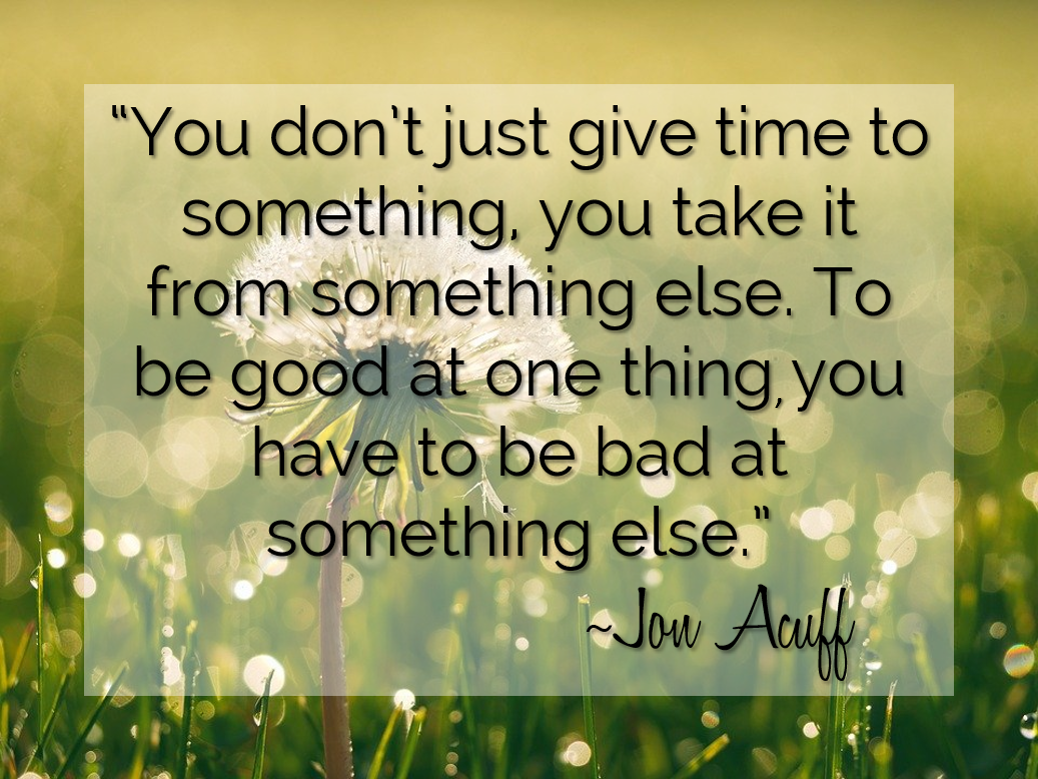


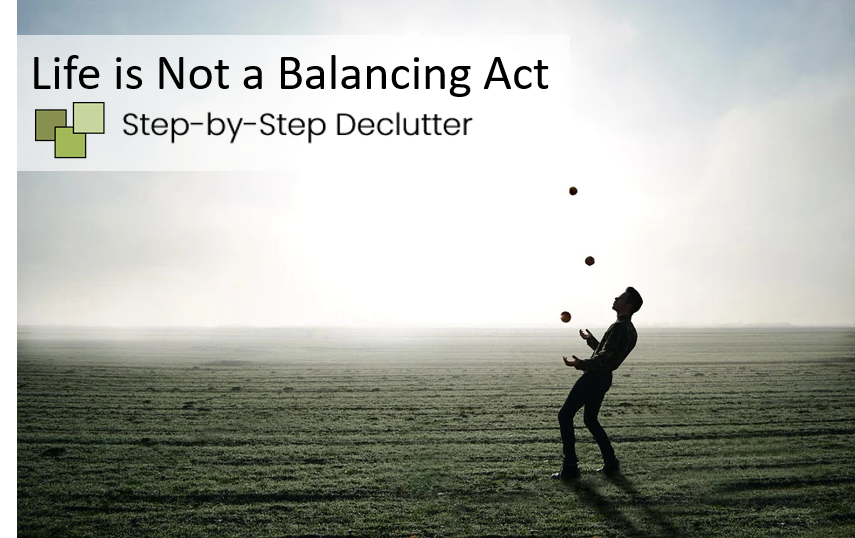

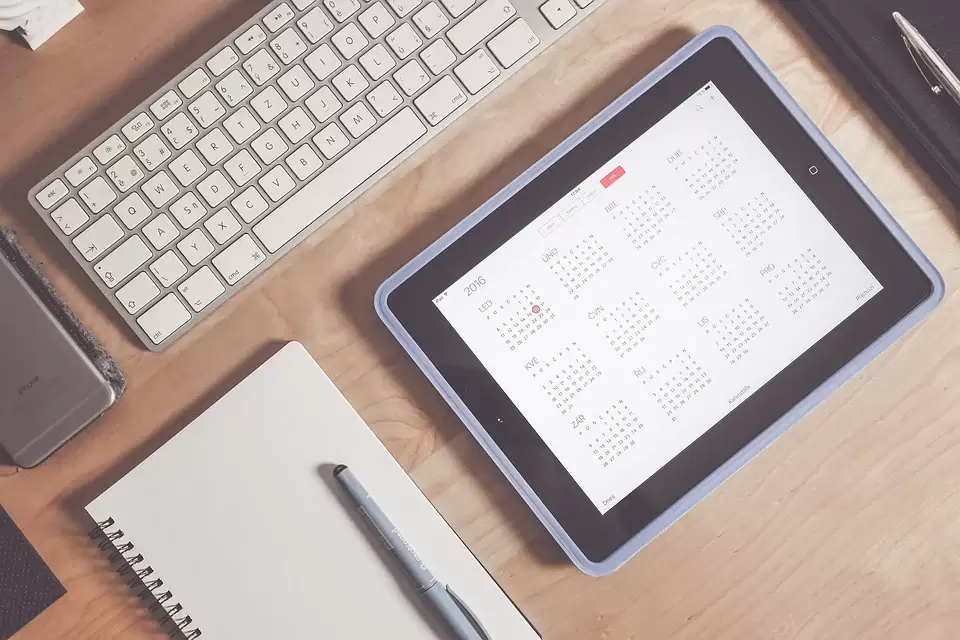


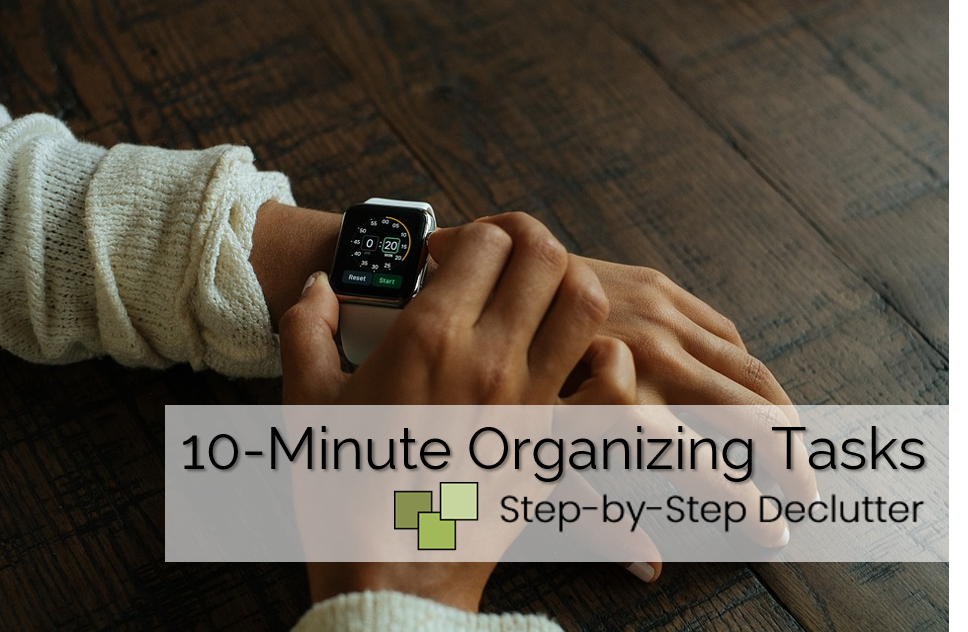
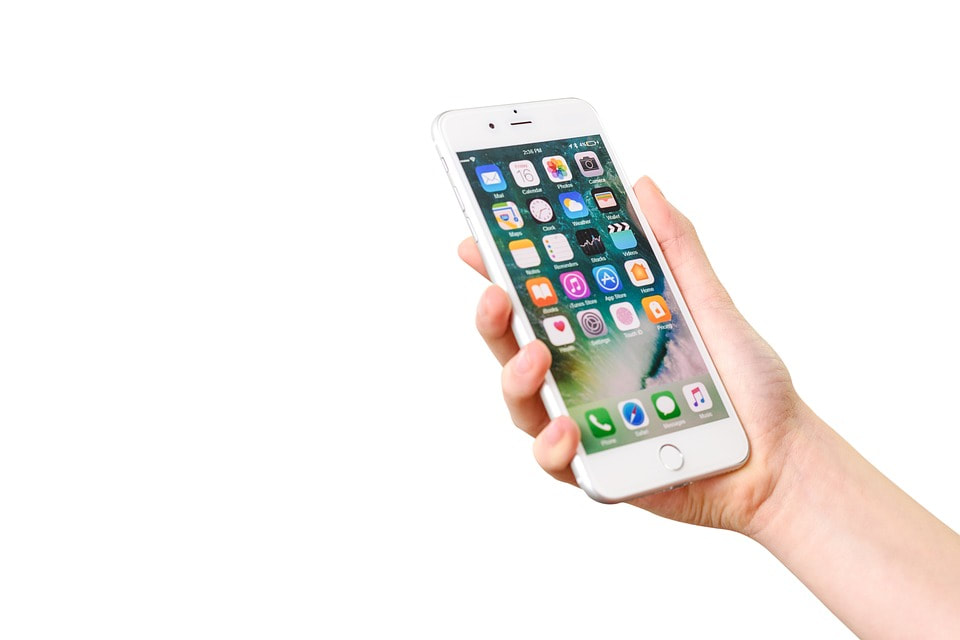
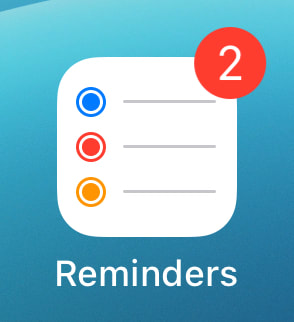
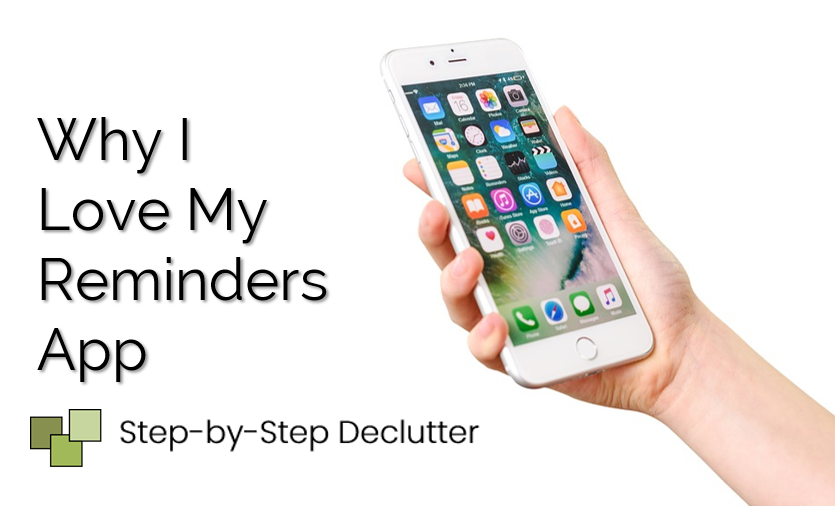

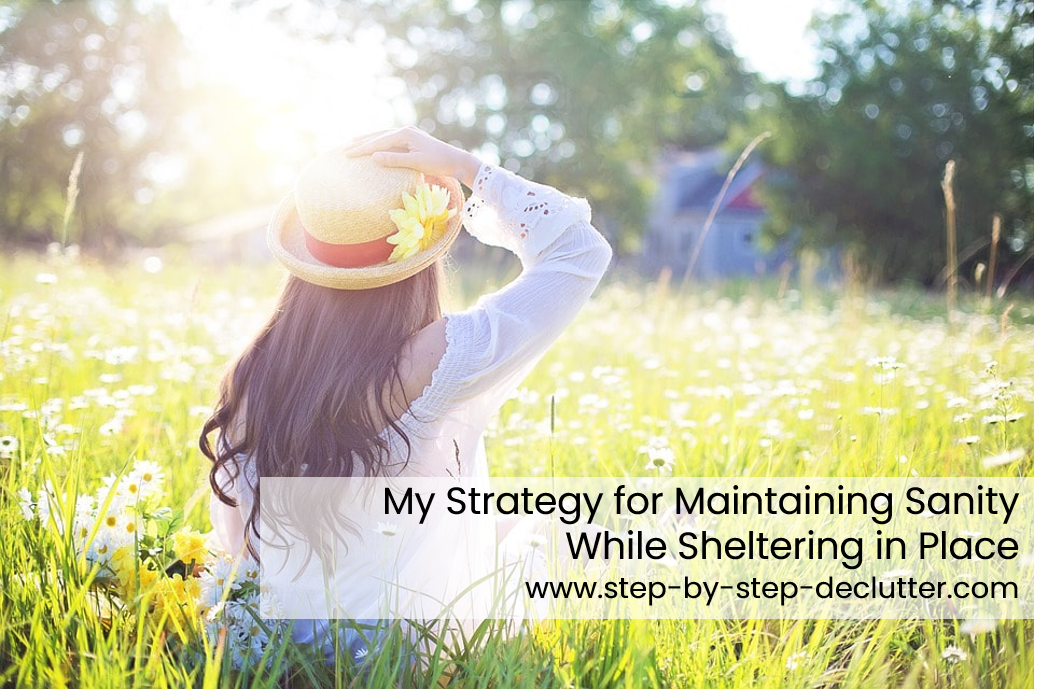

 RSS Feed
RSS Feed